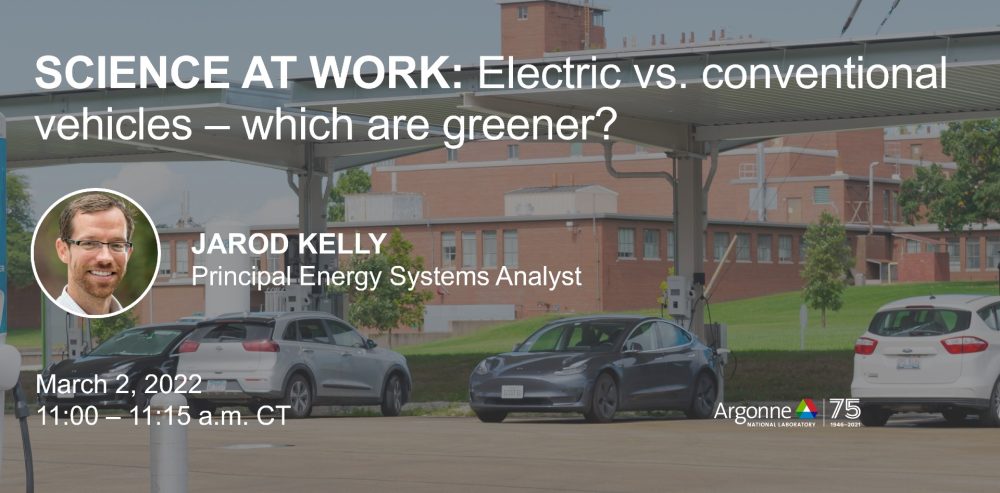
To what extent are electric vehicles better than gas cars for the environment? Experts at the Argonne National Laboratory, a US Department of Energy science and engineering research center in Lemont, Illinois, are inviting the public to listen in as they discuss the best ways to measure greenhouse gas emissions.
UnderstandSolar is a free service that links you to top-rated solar installers in your region for personalized solar estimates. Tesla now offers price matching, so it’s important to shop for the best quotes. Click here to learn more and get your quotes. — *ad.
Electric cars and the environment

Argonne is offering a free 15-minute webinar on Wednesday, March 2, from 12-12:15 p.m. ET.
The webinar is called “Science at Work: Electric vs. Conventional Vehicles – Which Are Greener?” You can sign up for the short webinar here, and it’s open to everyone.
Electric vehicles create less greenhouse gas emissions than gas vehicles. But certain details matter, such as how the electricity used to power EVs are produced, which materials are used to power the batteries, and how those materials are sourced.
In the webinar, Jarod Kelly, principal energy systems analyst, will discuss the environmental trade-offs in owning an electric vehicle versus a gas-powered vehicle. He will also show how Argonne’s free tool – the Greenhouse Gases, Regulated Emissions, and Energy Use in Technologies (GREET) model – can track how nearly any vehicle, fuel, or material affects our environment.
Kelly and moderator John Harvey, business development executive at Argonne, will explore how the lab’s way of measuring greenhouse gas emissions is guiding more than 48,000 users, including policymakers, worldwide.
Read more: Home EV charging spend will exceed $16B globally by 2026, says study
Electrek’s Take
The name of this webinar is slightly amusing, because we already know EVs are greener than gas-powered cars. But this webinar is worth listening to in order to learn more about exactly how one’s electric car impacts the environment.
Of course it’s cleaner to charge an EV with clean power, for example, but listeners will come out of this 15-minute-long webinar knowing more about where EVs sit when it comes to creating emissions, and what you can do to reduce your emissions further if you’re an electric car driver.
FTC: We use income earning auto affiliate links. More.




Comments